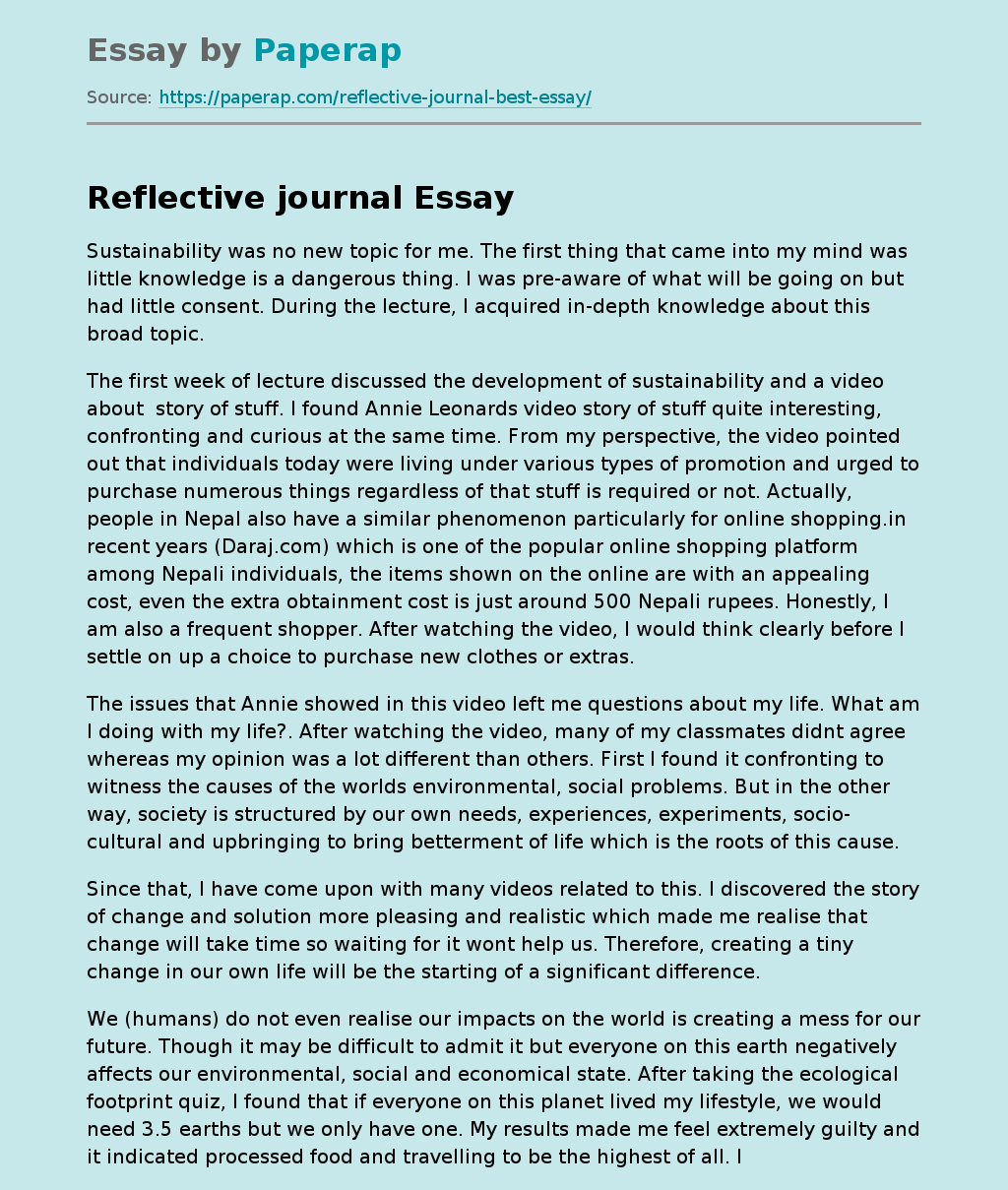The More Knowledge the More Power
Sustainability was no new topic for me. The first thing that came into my mind was little knowledge is a dangerous thing. I was pre-aware of what will be going on but had little consent. During the lecture, I acquired in-depth knowledge about this broad topic.
The first week of lecture discussed the development of sustainability and a video about story of stuff. I found Annie Leonard’s video story of stuff quite interesting, confronting and curious at the same time.
From my perspective, the video pointed out that individuals today were living under various types of promotion and urged to purchase numerous things regardless of that stuff is required or not. Actually, people in Nepal also have a similar phenomenon particularly for online shopping.in recent years (Daraj.com) which is one of the popular online shopping platform among Nepali individuals, the items shown on the online are with an appealing cost, even the extra obtainment cost is just around 500 Nepali rupees.
Honestly, I am also a frequent shopper. After watching the video, I would think clearly before I settle on up a choice to purchase new clothes or extras.
The issues that Annie showed in this video left me questions about my life. What am I doing with my life?. After watching the video, many of my classmates didn’t agree whereas my opinion was a lot different than others. First I found it confronting to witness the causes of the world’s environmental, social problems. But in the other way, society is structured by our own needs, experiences, experiments, socio-cultural and upbringing to bring betterment of life which is the roots of this cause.
Since that, I have come upon with many videos related to this. I discovered the story of change and solution more pleasing and realistic which made me realise that change will take time so waiting for it won’t help us. Therefore, creating a tiny change in our own life will be the starting of a significant difference.
We (humans) do not even realise our impacts on the world is creating a mess for our future. Though it may be difficult to admit it but everyone on this earth negatively affects our environmental, social and economical state. After taking the ecological footprint quiz, I found that if everyone on this planet lived my lifestyle, we would need 3.5 earths but we only have one. My results made me feel extremely guilty and it indicated processed food and travelling to be the highest of all. I was really surprised for the fact that if I individually consume this much then how about others. We are greatly affecting our environment. I considered that if we eat organic foods, consume less meat and start maintaining our life. Would it create a radical change in the footprint.
After learning the phase model, proposed by Dexter Dunphy. There are in fact six phases of organisational sustainability ; rejection, non-responsiveness, compliance, efficiency, pro-activity and sustaining organisation where the initial two stage are non-survival models that does not survive long term. Nevertheless, compliance and efficiency which did not give me much certainty whereas efficiency shows some sustainability an integral aspect of the supply chain and production process. From my point of view, sustainability must be worked in not rushed on to get to the strategic proactivity stage.
The second week of lecture determined there were five forms of capital but now there are key areas of six forms of capital. First of all, it was a bit of challenging so everyone in the class decided to brainstorm for a minute. What is capital from an individual’s point of view. Many of my friends describe it as an asset; money which is used in for starting an organisation. During the lecture I got to know that capital is not just only money but there are six forms of capital to deliver its products and services.
In spite of the fact that our lesson tested that it was extremely difficult to maintain the stability. We demonstrated that inside a various accumulation of business sample, it is progressively hard to improve and deplete natural, social and human capital, than it is to deplete or upgrade production and capital; and to upgrade them at the same time, was a significant accomplishment. A sustainable organisation will keep up and where possible improve these loads of capital resources, rather than deplete them.
The More Knowledge the More Power. (2019, Dec 01). Retrieved from https://paperap.com/reflective-journal-best-essay/

